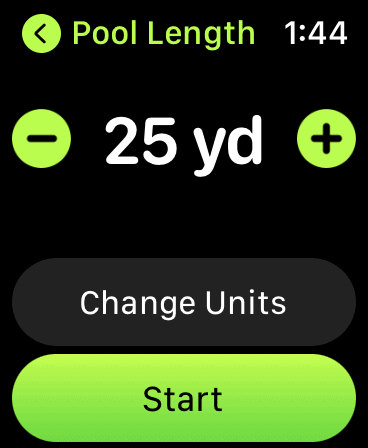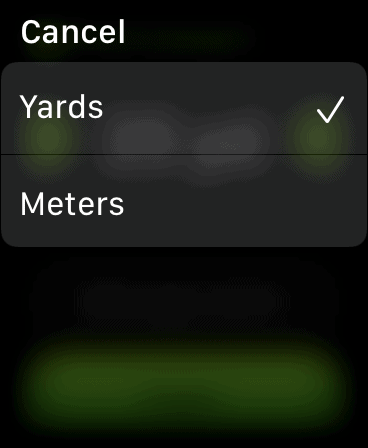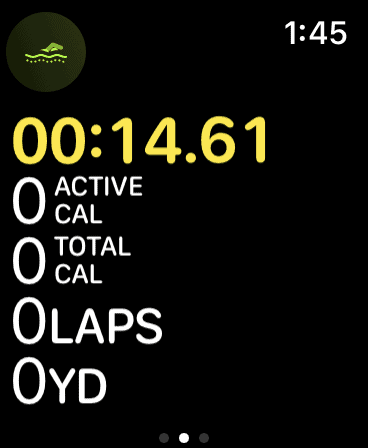
Lap swimming is one of the best full-body workouts, offering cardiovascular exercise while strengthening a variety of muscle groups. Swim lap distance is a useful metric to track your progress over time, or to compare to your fellow swimmers in a friendly competition. Therefore, we’ve come up with this handy guide to help you calculate your swim lap distance for all of Elite’s swimming pools in the Milwaukee area.
Swimming Length vs. Lap
Before we get into calculating swim lap distance, we first need to define what a lap is. Traditionally in sports, a lap refers to the completion of a course. In a swimming pool, the “course” is a bit more ambiguous. There seems to be some debate or confusion in the swimming community as to what a lap actually means. It could refer to the length of the pool, or “there and back,” equalling two lengths as you return to your starting point.
The Olympics defines a lap as one length of the pool. It’s worth noting, however, that Olympic pools are 50 meters in length, while most recreational lap pools are 25 yards or 25 meters. So, one could argue that a lap is actually just referring to 50 units of distance.
To further complicate matters, USA Swimming defines a lap as “One length of the course. Sometimes may also mean down and back (2 lengths) of the course.” It seems the debate will go on, and the term lap will remain open for interpretation.
At Elite, we have signs posted to help you calculate the amount of distance you swim. We define a lap as two lengths of the pool. You can also easily calculate how many miles. We list Elite Sports Club pool distances later in this blog.

Why Does it Matter?
So why all this talk on laps vs. lengths? In essence, it only matters for consistency’s sake. To calculate swim lap distance, you take the number of lengths times the distance of the pool. The important factor is that you know the distance of whatever unit of measurement you choose. Hence, just know what YOU are referring to when you count as a lap. If you want to simplify matters, ignore the term “lap” altogether and just multiply how many lengths you swim times the length of the pool.
Another reason why we discuss laps vs. lengths is related to fitness wearables. As technology evolves, there are more and more fitness wearables becoming available that are water-resistant and able to track your swimming distance. More and more swimmers are using wearables to track their swim distances rather than having to remember how many lengths they’ve swam in a workout.
The most commonly used device we’ve seen is the Apple Watch. When you select a swim workout, the first screen asks you to input the length of the pool. It will also allow you to change the unit of distance – yards or meters. Depending on which Elite location you’re at, you need to choose the correct unit of measurement. Here are the distances at our Splash Clubs:
- Elite Sports Club-Brookfield – 25 yards
- Elite Sports Club-Mequon – 25 yards
- Elite Sports Club-River Glen – 25 meters
Once you begin your workout, the Apple Watch counts “laps” as lengths of the pool, no matter what size it is. It will also show you the total distance.
We occasionally hold competitive swimming lap challenges at the clubs. It is here where we need everyone to be on the same page, all recording “laps” in the same manner.
After all that, we’d love to hear what YOU call a lap! What’s your preferred method of calculating swim lap distance? Leave a comment below!



13 Comments
my guess, was that one lap, was the length of the pool and back, so for 1500 meters in a 15 meter pool, was 15 laps,?
I used to think ( & still think) lap is length of pool which for my case 50m. So if plan for the day to swim for 1 km, I have to swim 20 laps (20 x50m). Even there are still debates going on regarding definition of lap for swimming I will use lap = length of a pool based on Olympic term. It’s good information and enlightenment regarding this, but not that important for one health improvement.
I think down and back is the more traditional usage. The = a lap is some revisionist silliness from cellphone-using grommets, partially driven by some confusing usage in recent Olympics. Stick with the traditional.
How anyone could think a lap is the length of the pool is illogical. It’s up and back. Same in track and field, you run lap it’s where you start and all the way around.
I swam 50 “lengths”, 25 laps, in 40 minutes. how far did I swim? the pool is 25 meters…. The staff at the facility disagree on distance. Some say 75 lengths is aile, others say 70…..????.
Sorry I meant to say the coach said I want 10 LAPS which was 20 length
This has been.of major discussion at the del Webb facility in which I live. I did swim competition and when the coach said to do 20 laps lap it was always down and back ( 20 lengths)
I swim for 45 minutes. I’m 73, use to count laps as down and back. Now I’m just happy to be in the pool enjoying a swim for 45 minutes without injury.
I’ve always counted a “down and back” as a lap in the 25 meter pool.. I usually do 25 to 50 laps. I recently bought a Garmin Swim Watch to help keep track because inevitably I would lose track of my count doing it in my head. I’m not totally sold on the swim watch thing, sometimes too complicated for what I need and then too there’s this little issue of remembering to turn it on when I jump into the pool
Nice essay—thanks for writing it.
A good plan!
For 50 years, I’ve counted a lap as down and back. I’d rather count laps this way than lengths, I don’t have to count as high. A lap is the completion of a course, which to me means down and back, a full circuit. A lap being a length is redundant and useless. When you swim laps you swim down and back, you don’t swim down and get out. When you share Lanes you actually swim in a circle, one lap is a full circle.
A lap is a round trip from your starting point, back to your starting point.
I swim for 40 minutes. Don’t calculate distance.